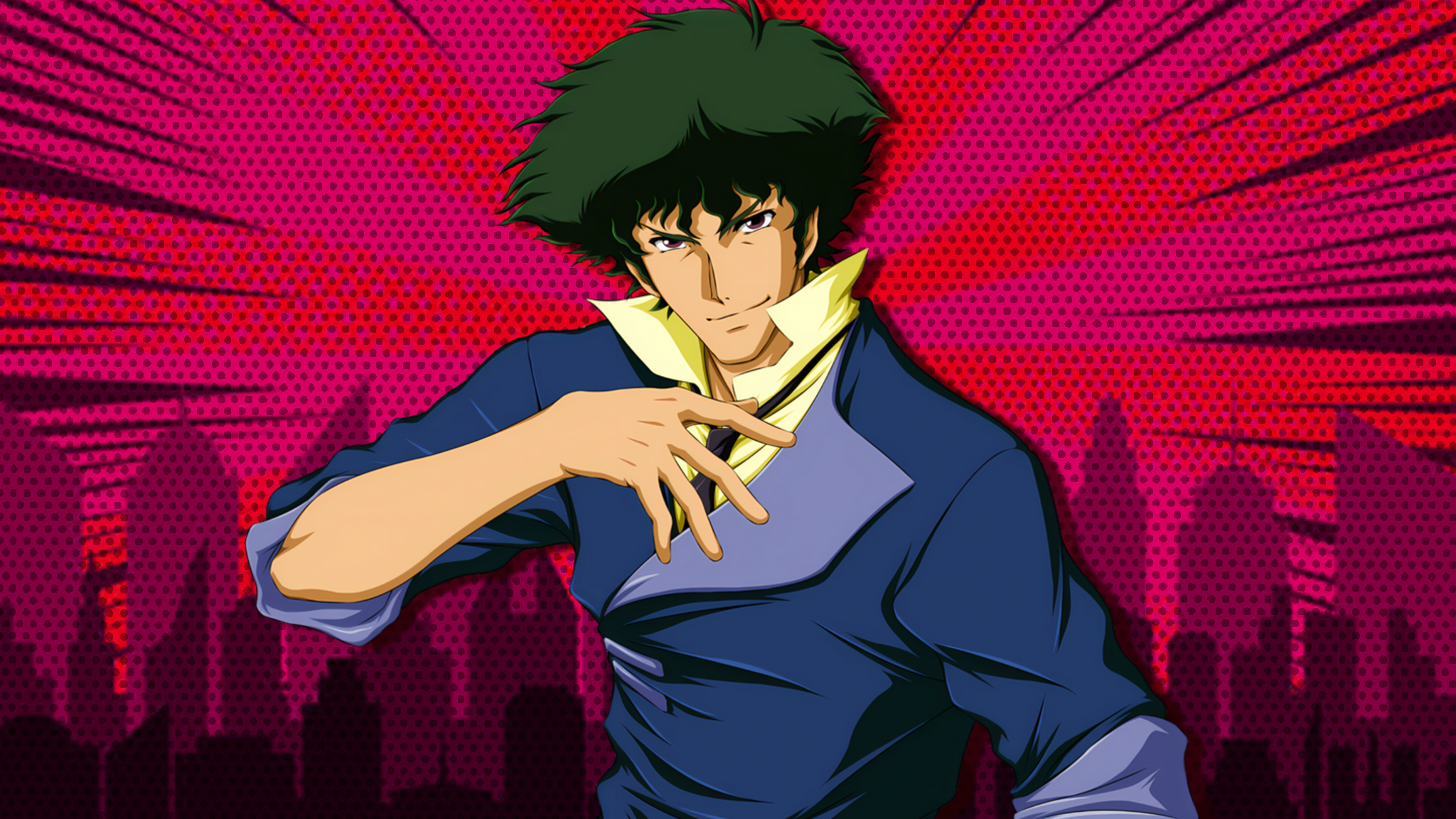
Few anime have left such a lasting impression on popular culture like “Cowboy Bebop“. On the outside, it’s a Japanese-made series that seamlessly integrates Western aesthetics in a space setting, infused with a hint of existentialism and catchy one-liners. However, beneath its cool jazz beats and action sequences, lies a tale about individuals tormented by their pasts, either reluctant or incapable of leaving it behind. Each episode offers a short escape for the Bebop crew as they journey through space while evading their personal ghosts. Fundamentally, “Cowboy Bebop” is a story about longing, remorse, and the unstoppable march of time.
Remarkably, the characters of the Bebop team aren’t traditional heroes seeking redemption; instead, they’re ordinary individuals grappling with their identities. From Spike’s heartbreaking love tale, Jet’s unguided quest for justice, Faye’s longing for acceptance, to Ed’s fading innocence, the series masterfully portrays the gritty, complex nature of being human. It is this raw humanity that lends Cowboy Bebop’s most memorable lines enduring relevance among fans even after many years. The show’s closing words, “You’ll have to carry that weight,” remain exceptionally poignant because, much like the Bebop crew, we all bear our past, whether we wish to or not.
I’m Not Going There to Die (Episode 26)
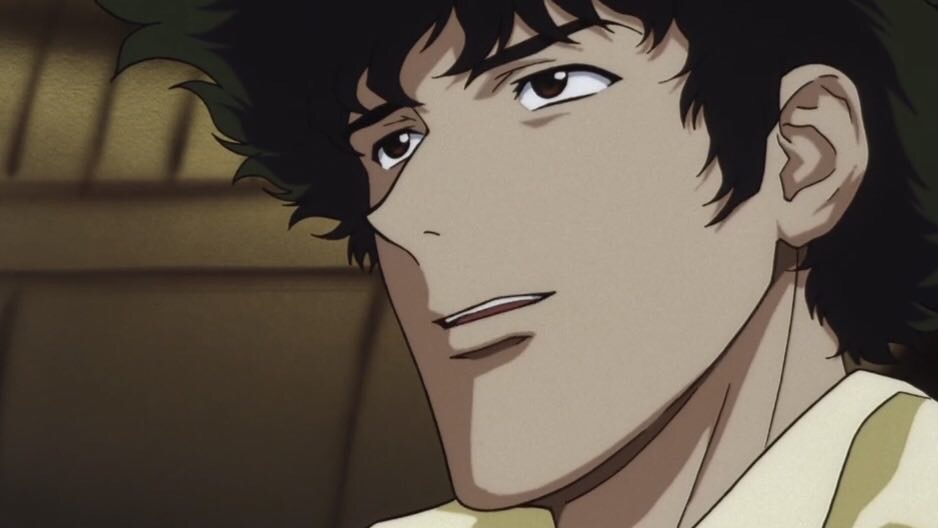
In the animated series ‘Cowboy Bebop’, Spike often courts danger without regard for his own life, suggesting he’s chasing something through the excitement of combat. However, in the 26th episode, on the brink of his climactic battle against the series’ primary villain, Vicious, Spike’s conversation with Faye encapsulates his entire story arc.
“I’m not going there to die, I’m going there to find out if I really am alive.”
At this very instant, Spike comes to understand that pain and understanding are merely a question of viewpoint. The truth is, Spike has been “dead” in a sense for quite some time. His past has left him feeling empty, existing but never truly experiencing life. Therefore, enduring another figurative death isn’t much of a shock to him, regardless of how the viewers perceive it. In essence, death could be the only kind of happy ending Spike might ever encounter.
God Didn’t Create Humans (Episode 23)
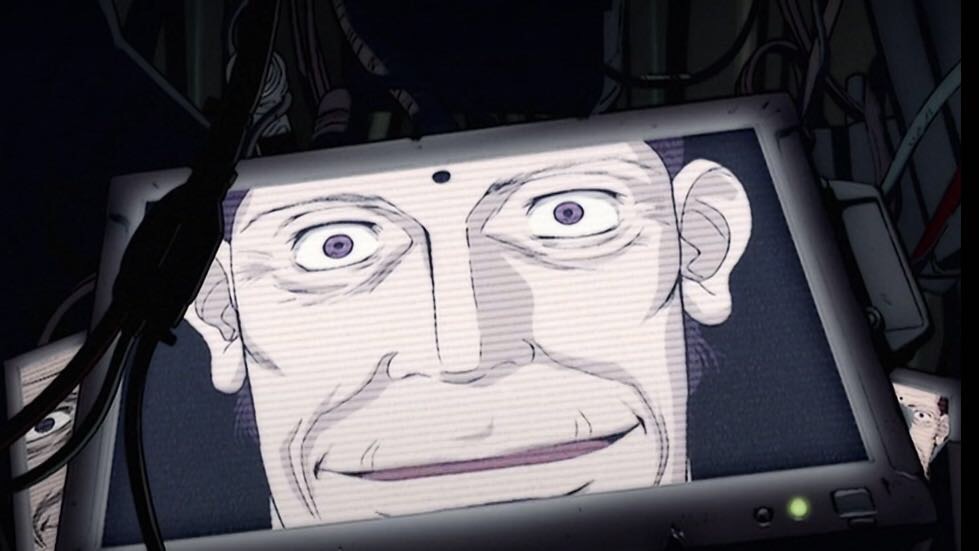
A standout moment in “Cowboy Bebop” is Dr. Londes’ speech during the episode titled “Brain Scratch”. In this scene, he manipulates susceptible individuals into joining his cult by promising that relinquishing their earthly bodies is the sole means to reach heaven. Troubled by her financial obligations and past, Faye Valentine is unfortunately ensnared in this cult. However, she eventually discovers it’s not the utopia she had imagined, prompting her to seek help from Spike and Jet for rescue.
“God didn’t create humans. Humans created God.”
In this scenario, Spike comes across a broadcast on TV where Londes delivers a speech. The words of this manipulative cult leader resonate deeply, even though they are unexpected. Londes argues that people may not necessarily believe in God due to His existence but rather because they seek something more powerful as the world can be too harsh to endure alone.
Shoot Them Before They Shoot You (Episode 3)
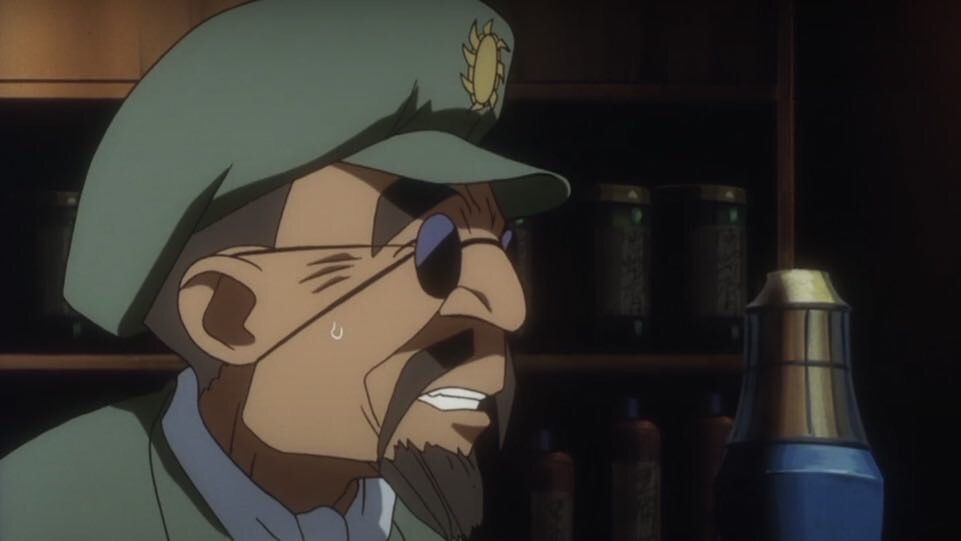
Faye Valentine first appears in the “Cowboy Bebop” series during the “Honky Tonk Women” episode. In this episode, while being pursued by a gang on Mars, she nonchalantly smokes with the shop owner and then retaliates against her attackers when they surround her.
“You know the first rule in combat? Shoot them before they shoot you.”
This one quote encapsulates Faye’s personality: skeptical, practical, and always prepared to strike first. She’s a tough survivor who doesn’t trust anyone, and from the outset, Cowboy Bebop demonstrates that she plays by her own set of guidelines. Over the course of the series, Faye consistently shows that if the universe is unforgiving, she’ll match its harshness to make it through.
Hunger Is the Best Spice (Episode 26)
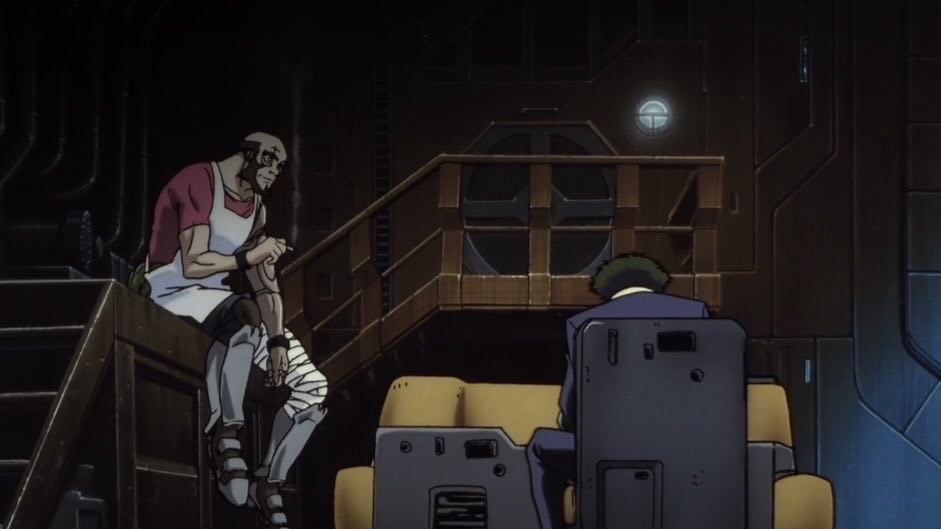
In the last episode of the series, I found myself observing Spike nibbling at his meal while Jet puffed on a cigarette nearby. It was a tranquil scene, reminiscent of two long-time companions enjoying each other’s company with an undeniable sense of familiarity pervading the atmosphere. However, there was also an undercurrent of conclusiveness in Spike’s words.
“Hunger is the best spice, they say.”
His remark evokes recollections of the first episode, where Spike was consuming Jet’s less-than-appetizing food. However, there’s an unmistakable sense of change this time around. It’s not just a meal; it’s a farewell. Spike comes back for one final meal, one last shared laughter with Jet before everything takes a turn. Their jovial banter, oblivious to the fact that this would be their last genuine moment of tranquility, only intensifies the poignancy.
Instead of Feeling Alone in a Group, It’s Better to Have Real Solitude (Episode 12)
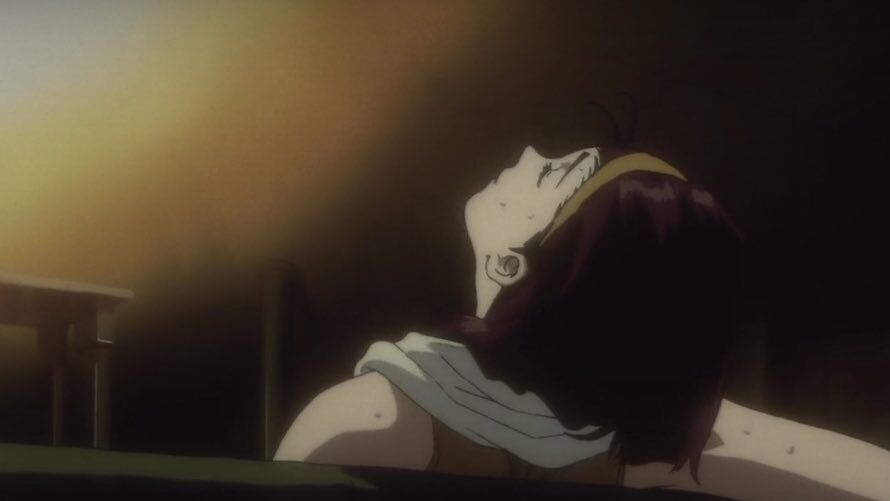
Initially presented as a fugitive with a bounty on her head, Faye Valentine’s character becomes increasingly intriguing as the story unfolds. To shield herself emotionally, Faye maintains distance from others. However, despite her attempts to deny it, there is an undeniable longing within her for a sense of belonging. This longing is particularly evident in her dialogue with Gren during the “Jupiter Jazz (Part 1)” episode.
People often claim that humans are inherently social creatures who cannot survive independently. However, one can live quite a while on their own. In my opinion, being surrounded by others yet feeling lonely is different from truly enjoying the peace and quiet of genuine solitude.
Her words seem to be a protective response, and Gren perceives this. He proposes that Faye might struggle with feelings of abandonment – she tends to leave relationships before they have a chance to end, which is a blunt yet fitting assessment. In reality, genuine camaraderie provides a feeling of security and acceptance, but being isolated amidst others is more distressing than solitude.
Whatever Happens, Happens (Episode 19)

In the captivating series known as “Cowboy Bebop,” a quote that resonates deeply with me encapsulates Spike’s entire persona. Particularly in the episode entitled “Wild Horses,” when chaos ensued over landing gears and thrusters, Spike exhibited an unusual calmness. Instead of joining the fray, he took a moment to light a cigarette, seemingly accepting whatever destiny had in store for him next. With his history of brushing against death’s edge on numerous occasions, he understood that fretting wouldn’t alter the inevitable.
“Oh well. Whatever happens, happens.”
In Cowboy Bebop, Spike’s aloofness is both captivating and his major weakness. The show masterfully explores the tension between drifting without purpose and seizing control. It underscores that escaping one’s past is impossible; it will inevitably track you down, whether you choose to face it or not. This idea is a recurring motif in Shinichiro Watanabe’s creative endeavors.
Don’t Leave Things in the Fridge (Episode 11)
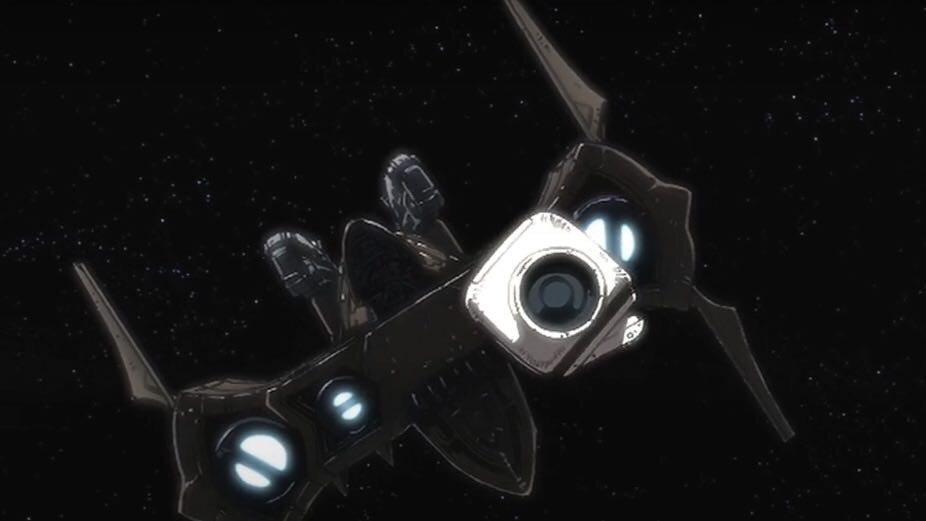
In the “Toys in the Attic” episode from the series Cowboy Bebop, the crew is pursued by an enigmatic being. Each member speculates about its origin: a genetically altered rodent, an extraterrestrial parasite, or a cosmic entity. However, the surprising truth is that it stemmed from a one-year-old lobster Spike had overlooked in the refrigerator.
“Don’t leave things in the fridge.”
The creature emerged from the decaying food, and when Spike destroys it with his flamethrower, that’s the ultimate lesson learned. Consequently, what initially appeared as a chilling, suspenseful, and eerie mystery morphed into one of the most hilarious moments in the series. And this absurd quote transformed that terrifying episode into pure comedic brilliance.
Beautiful, Dangerous Ordinary (Episode 26)
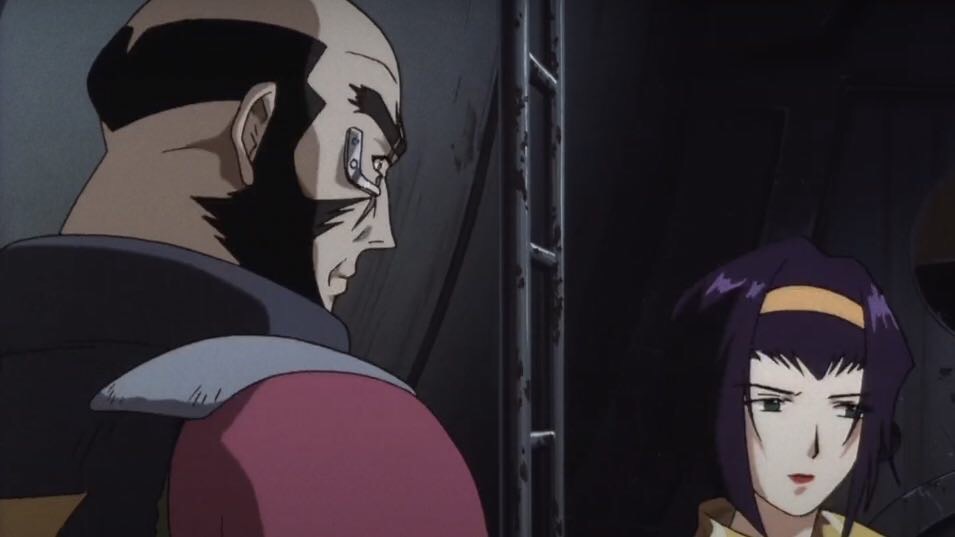
In Episode 26 of “Cowboy Bebop”, titled “The Real Folk Blues (Part 2)”, Jet and Faye engage in a final dispute regarding Spike. Curious about Jet’s reluctance to pursue him, Faye questions why he isn’t taking action, but Jet responds by labeling Spike as nothing more than a source of trouble. Later, Jet inverts the question, asking Faye to describe the kind of woman Julia, Spike’s lover, was. Faye’s response offers some insight into their past.
“Ordinary. The kind of beautiful, dangerous ordinary that you just can’t leave alone.”
To Spike, Julia was more than just love and history; she represented his unfinished story as well. Yet to the world, she was simply another individual. This might be what Faye referred to as “ordinary.” Julia’s impact was significant, but was it truly beneficial? That question is open for debate.
Your Story Needs Editing (Episode 15)

In episode 15 of the series “Cowboy Bebop,” titled “My Funny Valentine,” Faye reveals her backstory, describing how she once awoke with no recollection of her past and found herself saddled with substantial debts. A lawyer offered assistance, courting her with fine dining and affectionately referring to her as his Sleeping Beauty. However, during a chase from debt collectors, he instructed her to flee.
Moments after, his car blew up, claiming his life. At the hospital, she learned he’d bequeathed her all his assets – unfortunately, these turned out to be more liabilities. As I conclude this tale, Spike exits the bathroom and nonchalantly comments:
“Could use a trim. Your story could benefit from some pruning.
In a typical Spike-like manner, he’s dry and offhand. Yet, Faye’s history is a tapestry of deception, treachery, and sorrow. This statement serves to highlight that even she isn’t sure about the true starting point of her own narrative.
Men Only Think About the Past Right Before Their Death (Episode 25)
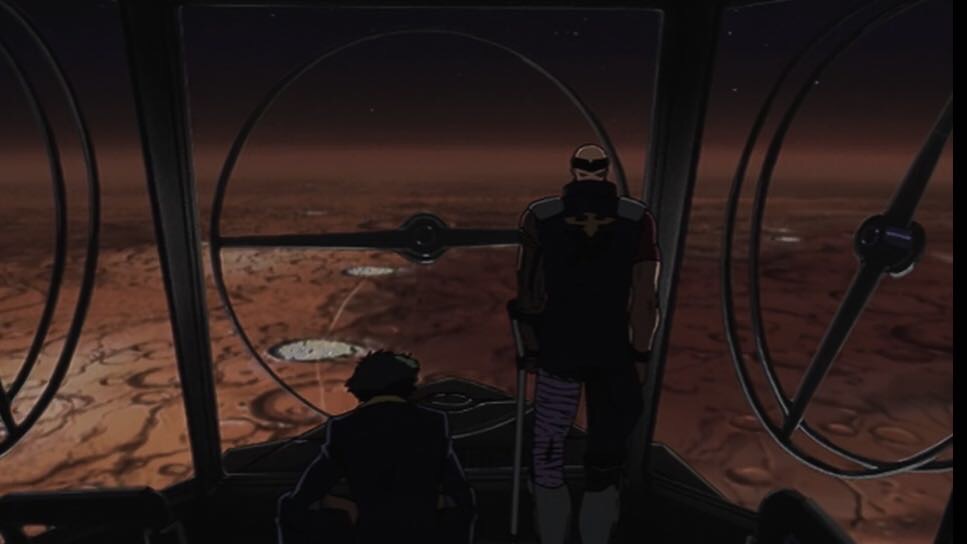
In episode 25 of “Cowboy Bebop,” titled “The Real Folk Blues (Part 1),” Jet recognizes that Spike is venturing into a perilous situation from which he might not escape. Yet, Jet also understands that Spike won’t back down. As Spike wakes up and they both head to the cockpit, Jet shares his concerns by saying:
In their final moments, men often find themselves reflecting on their past, seemingly desperate to find evidence that they truly lived.
Jet realizes that Spike sees Julia not just as a past love, but as an essential piece of himself, a part that completes him. For years, he’s wandered aimlessly, but now that she’s close by, he can no longer evade his past. This quote resonates with both Spike and the viewers. In the words of Naruto’s Itachi Uchiha, it seems we don’t truly understand ourselves until the moment before our end.
Read More
- PI PREDICTION. PI cryptocurrency
- WCT PREDICTION. WCT cryptocurrency
- Gold Rate Forecast
- Guide: 18 PS5, PS4 Games You Should Buy in PS Store’s Extended Play Sale
- LPT PREDICTION. LPT cryptocurrency
- SOL PREDICTION. SOL cryptocurrency
- Playmates’ Power Rangers Toyline Teaser Reveals First Lineup of Figures
- FANTASY LIFE i: The Girl Who Steals Time digital pre-orders now available for PS5, PS4, Xbox Series, and PC
- Shrek Fans Have Mixed Feelings About New Shrek 5 Character Designs (And There’s A Good Reason)
- Solo Leveling Arise Tawata Kanae Guide
2025-02-07 02:10